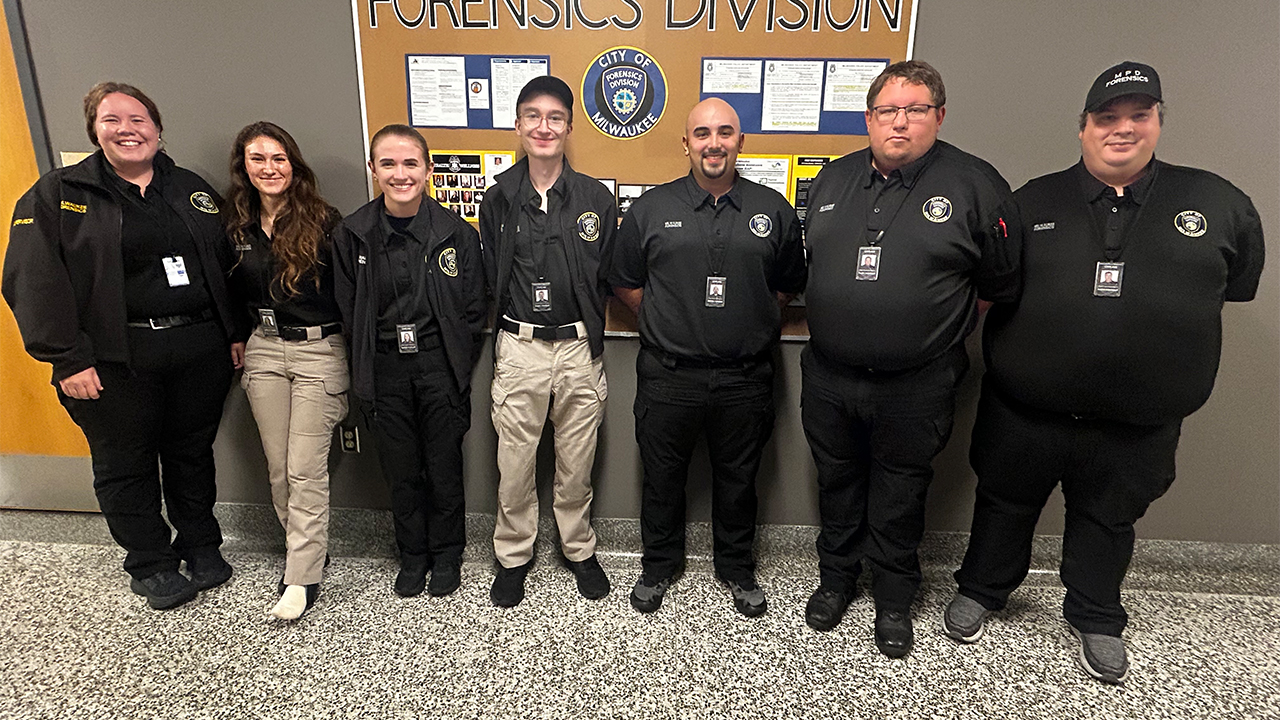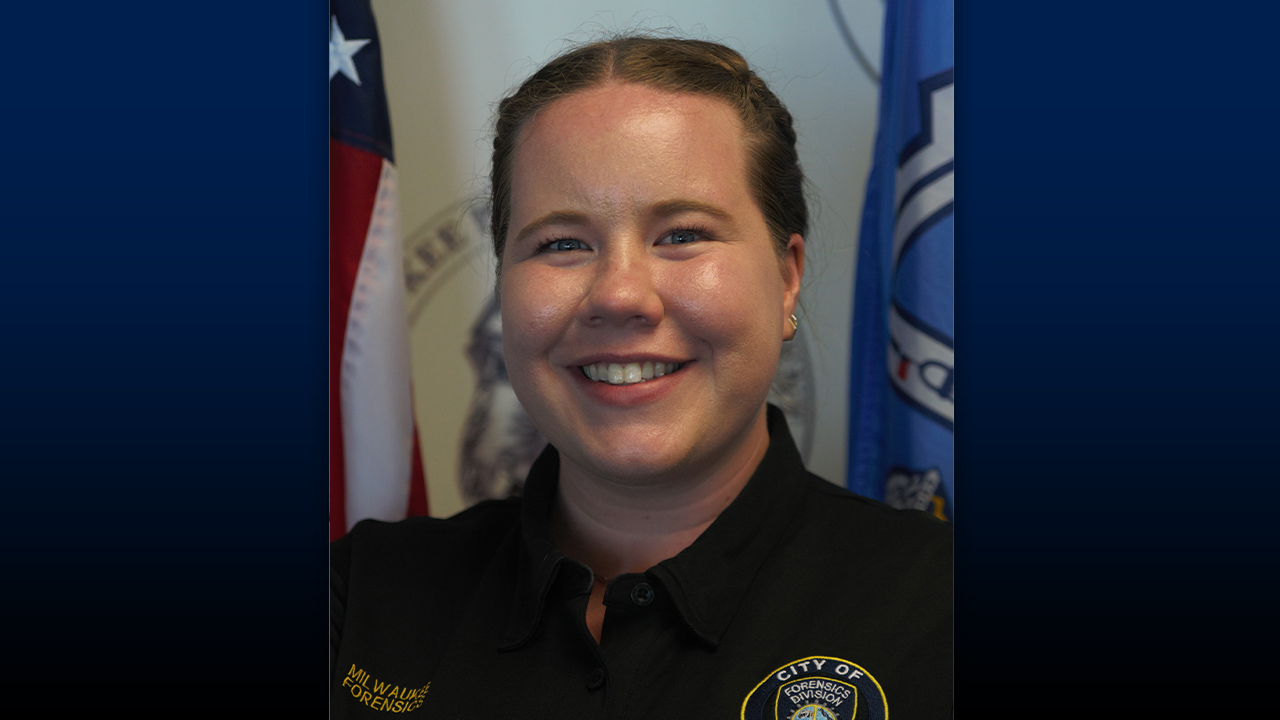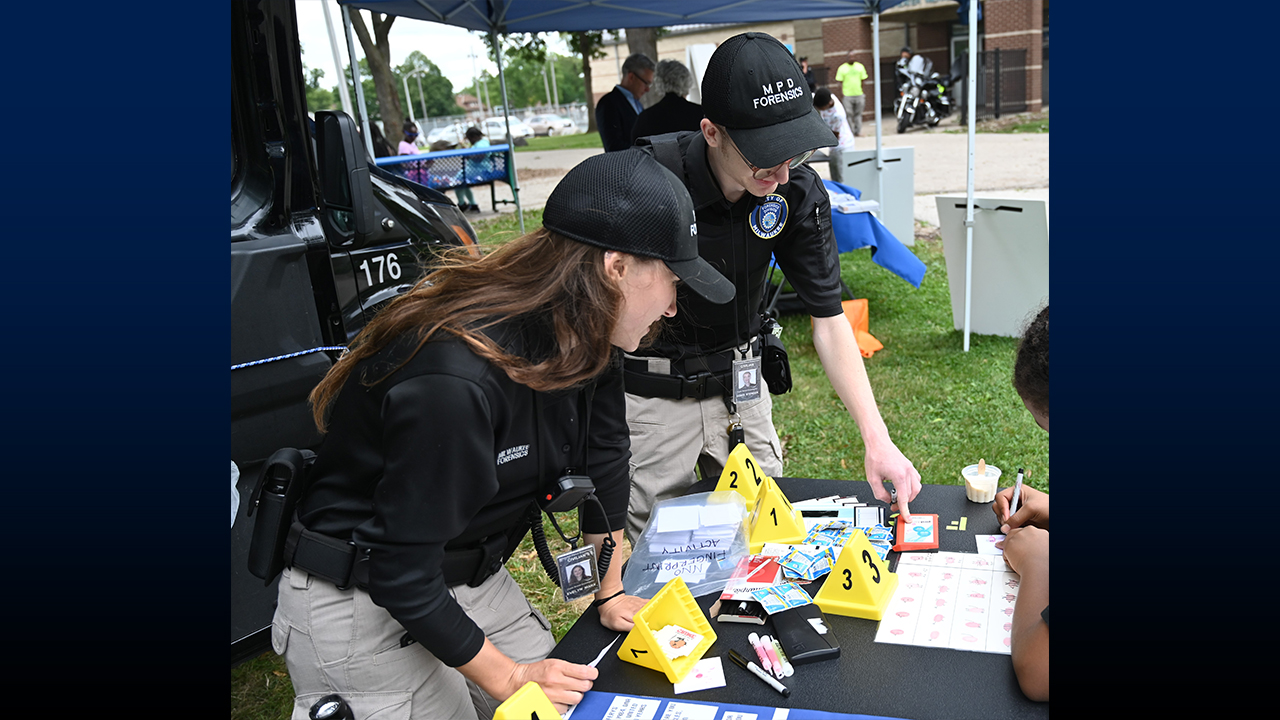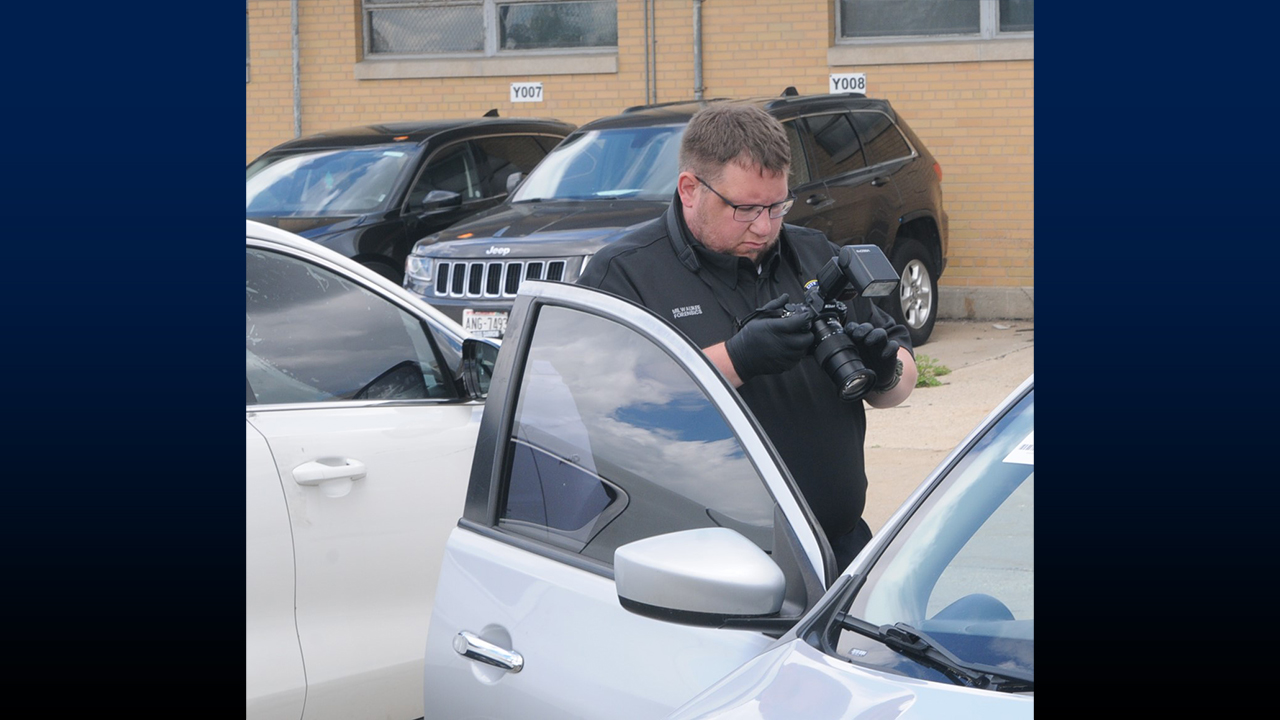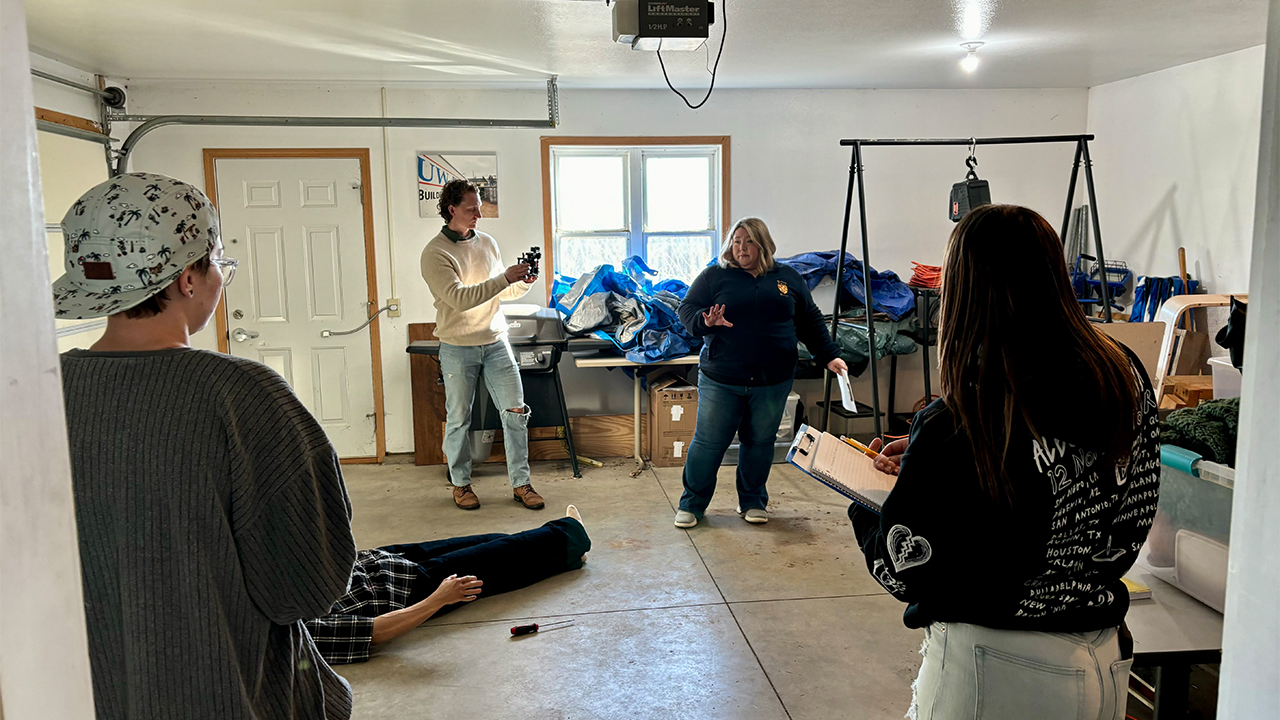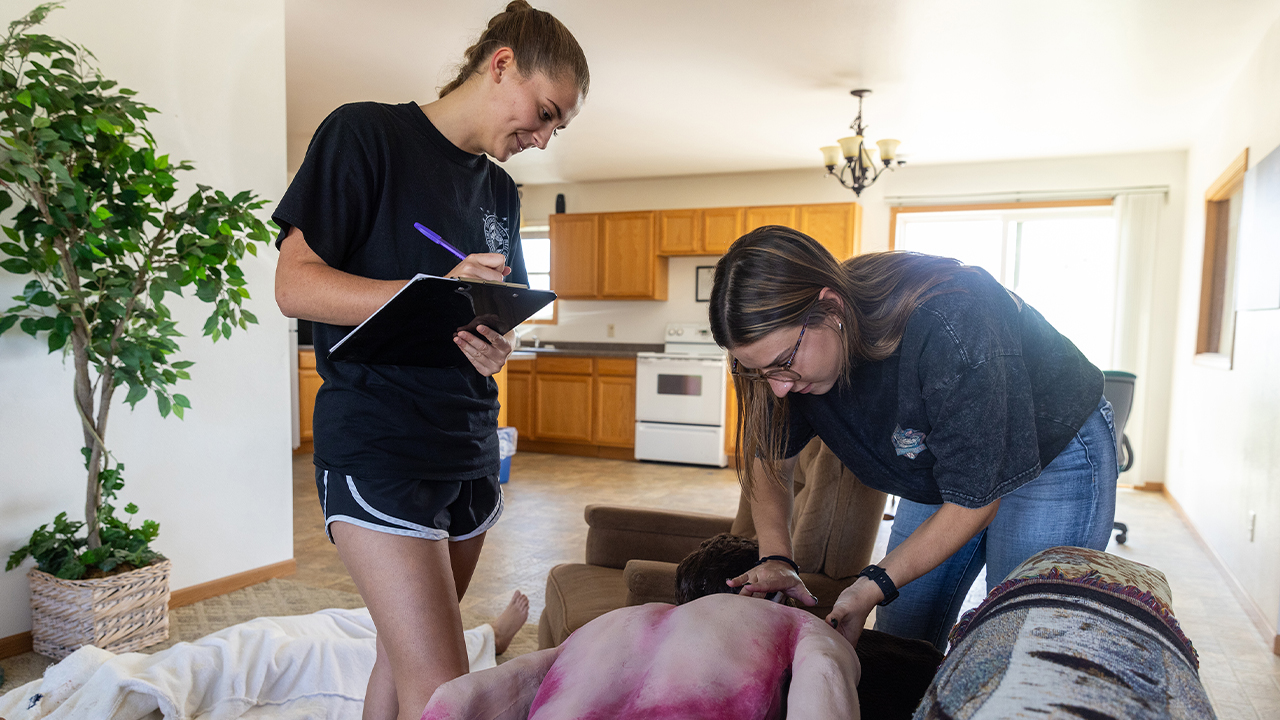To build a solid team, there must be a shared commitment to the mission and a unified vision. At the Milwaukee Police Department, one team exemplifies this: the forensics division. Seven of the 11 members are graduates of the University of Wisconsin-Platteville, with 2018 alumna Cassandra Strandberg leading the way as crime scene supervisor. Strandberg's journey reflects the growing trend of Pioneer graduates excelling in law enforcement, particularly within forensic investigation.
“I am responsible for supervising civilian crime scene investigators and sworn forensic investigators,” said Strandberg, who graduated with a Bachelor of Science in forensic investigation with a minor in criminal justice. “I respond to scenes, review reports, assist with communication throughout the department and train new crime scene investigators.”
The trajectory of her career has been nothing short of impressive. After starting her career as a property crime technician with the Austin Police Department, her dedication quickly earned her the title of senior crime scene specialist. In the fall of 2023, she spotted a job opening for crime scene supervisor at the Milwaukee Police Department and successfully applied, beginning her new role earlier this year. As a graduate of UW-Platteville, this move brought her back to her roots.
“My time at UW-Platteville helped shape me into the employee and individual I am today,” recalled Strandberg. “My courses within the forensic investigation degree program were hands-on and engaging. I felt like I was able to get to know my professors and peers on a personal level which made the learning environment extremely enjoyable and supportive.”
The educational foundation that Strandberg and her colleagues received was crucial to their success and made them stand out in the field of applicants.
“During the interview process candidates were asked not only about forensic procedures but critical thinking, leadership, teamwork, time management, adaptability and interpersonal skills,” said Milwaukee Police Forensics Services Director Ryan Orlovsky. “The results speak for themselves, with more than half of the civilian crime scene investigators hired so far from UW-Platteville.”
Orlovsky emphasizes the preparedness of UW-Platteville graduates for forensic careers in law enforcement, especially in the discipline of photography.
“UW-Platteville graduates are well prepared for this type of work,” noted Orlovsky. “Their knowledge of photography to document evidence at crime scenes was light years ahead of many applicants, which is yet another reason why they are a vital part of our forensic team.”
That news came as a high compliment to Daniel Roman, a former Madison, Wisconsin law enforcement officer for more than 33 years and current instructor of Crime Scene Documentation and Crime Scene Processing 1 at UW-Platteville.
“When I heard that, it put a huge smile on my face,” stated Roman. “We’ve only just started teaching photography, so it has to be students who just graduated who are searching for these jobs, getting these jobs and remembering what I taught them.”
He stresses in his lectures that evidence preservation, diagraming and documentation are paramount to working cases and solving crimes.
“You're not just capturing a moment; you're preserving a story,” he explains. “This mindset is integral to the work of forensic investigators and legal teams, who rely on accurate documentation to build cases.”
Strandberg also oversees the Forensic Evidence Laboratory, where she manages lab operations and quality control of forensic analyses. Her leadership in this area highlights the importance of accuracy and efficiency in forensic investigations.
“Cassie expresses ideas that add value to the organization, seeking multiple points of view and creative solutions,” Orlovsky commented. “I made up my mind to offer Cassie a position when she told the interview panel that she also loves mentoring and teaching others.”
Strandberg learned to work as a team during her days in Platteville. The landmark offerings within the university’s Department of Criminal Justice and Forensic Investigation, such as the Forensic Investigation Crime Scene House (FICSH) where students work together on cases, have helped prepare students for careers in law enforcement.
"We have the instructors, the experience and the resources within academia,” said Dr. Will LeSuer, chair of the Department of Criminal Justice and Forensic Investigation at UW-Platteville. “It's the hands-on elements and the materials that make a difference. The students engage in simulations together that closely resemble real crime scenes, allowing them to practice, experiment and even make mistakes—opportunities that aren’t available in actual crime scenes.”
In an era where forensic investigation is one of the fastest-growing specializations in criminal justice, the successful careers of alumni like Strandberg and her team stand as a testament to the quality of education and training offered at the university.
“Cassie and her team do their jobs with a sense of urgency and commitment to complete the mission while achieving organizational goals,” said Orlovsky. “UW-Platteville clearly is a leader amongst the state as the alumni are all doing a fantastic job in their new roles.”
Strandberg continues to draw strength from her educational background, attributing her success to her time on campus. She believes that collaborating with a team that shares a similar perspective strengthens the Milwaukee Police Department.
“I feel proud of my alma mater when I work with other individuals who graduated from UW-Platteville,” said Strandberg. “It’s a testament to how excellent the forensic investigation program is at UW-Platteville. It’s bonding to reminisce about our time as Pioneers and to share common experiences.”

